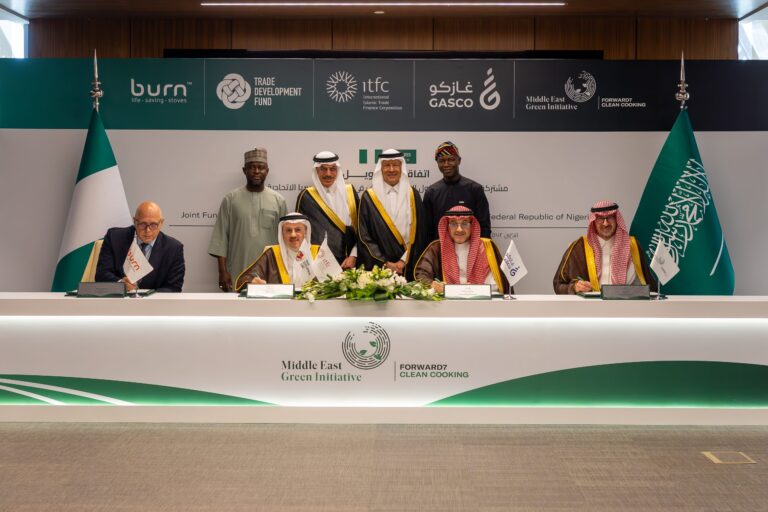The International Islamic Trade Finance Corporation (ITFC) and the Trade Development Fund (TDFD) have joined forces with the Oil Sustainability Program (OSP) and BURN Manufacturing to roll out a clean cooking initiative aimed at transforming household energy use in Nigeria.
The agreement, signed at the Saudi Ministry of Energy in Riyadh, outlines plans to produce and distribute 20,000 LPG (liquefied petroleum gas) cooking kits to underprivileged households. Each kit includes a gas cylinder, stove, and key accessories, along with user education on safety and sustainability.
This multi-year project—spanning eight years—includes direct financial support for household LPG refills, to be sustained through revenues generated from carbon credits tied to the use of the eco-friendly cooking systems.
The initiative is a collaboration between ITFC, TDFD (managed by ITFC), OSP, and BURN Manufacturing, and was officially endorsed in the presence of HRH Prince Abdulaziz bin Salman Al Saud, Saudi Arabia’s Minister of Energy, and Dr. Muhammad Al Jasser, Chairman of the Islamic Development Bank (IsDB) Group.
Key signatories included Eng. Adeeb Y. Al-Aama (CEO of ITFC and Chair of the TDFD Executive Committee), Eng. Mohammed bin Haitham Al-Tayyar from the Forward7 initiative, and Mr. Lev Herrom, CFO of BURN Manufacturing. A supplementary agreement was also signed by GASCO CEO, Eng. Abdulrahman Bin Sulaiman, and Eng. Al-Aama, assigning TDFD to oversee and disburse funds to project implementers.
This partnership is the first formal project launched under Forward7, a program focused on extending clean cooking access across the Least Developed Countries (LDCs). It also contributes to Saudi Arabia’s broader vision under the Middle East Green Initiative, launched in 2021.
Significantly, the partners were able to slash the cost of each LPG kit by 63%, dramatically boosting affordability for low-income users. The effort builds on a Memorandum of Understanding signed in 2024 between ITFC and OSP during the IsDB Group’s Annual Meetings, reinforcing a shared commitment to achieving Sustainable Development Goal 7 (SDG 7)—universal access to affordable and modern energy.
Beyond providing clean energy, the initiative models a replicable framework blending grant funding, carbon credit finance, and public-private collaboration, positioning multilateral institutions to deliver scalable and impactful climate solutions across OIC member states.

